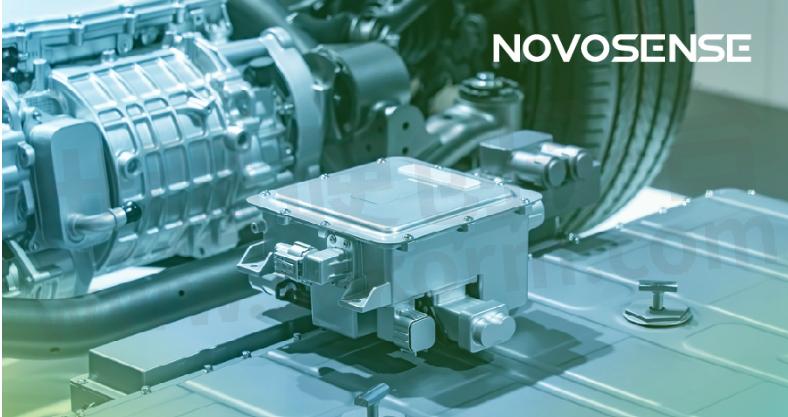NOVOSENSE Introduces Automotive CMOS Integrated Temperature Sensors with Digital/Analog Output

NOVOSENSE announced the launch of the NST175-Q1 series of automotive digital output temperature sensors and the NST235-Q1, NST86-Q1 and NST60-Q1 series of automotive analog output temperature sensors. These temperature sensors adopt high-performance, high-reliability CMOS temperature measurement technology, featuring high accuracy over the full temperature range, high linearity, low power consumption and high integration. They don't require additional circuitry and can effectively replace passive thermistors, boasting high cost performance.
Performance requirements for temperature sensors in automotive electronics
In an automotive electronic system, temperature sensors are an essential component to help the system manage heat efficiently. Through real-time monitoring of temperature conditions in the system, cooling strategies can be adjusted in a timely manner to prevent overheating and optimize performance, ensuring equipment durability.

Typically, the lifespan of electronics in an automotive system is directly related to the temperature at which they operate. In order to ensure vehicle durability, e.g. the proper functioning of components such as power stage field effect transistors over long periods of time, temperature sensors must be extremely reliable with minimal drift. The sensor material can affect the amount of drift, e.g. silicon-based temperature sensors have virtually no temporal drift, resistive temperature sensors have a drift range of roughly ±0.1℃ to ±0.5℃ per year, and conventional negative temperature coefficient (NTC) thermistors typically have a temperature drift of >5% over time (not including drift of external components). Also, as the system ages, temperature sensor errors increase, which can limit system efficiency and force it to shut down prematurely or cause thermal damage to components.
Therefore, in automotive electronic systems with high reliability requirements for long-term performance, CMOS integrated temperature sensors that provide accurate temperature values over the full temperature range are a very excellent choice, and NOVOSENSE's automotive digital output temperature sensors offer significant advantages. Its NST175-Q1 series of automotive digital output temperature sensors and NST235-Q1, NST86-Q1 and NST60-Q1 series of automotive analog output temperature sensors all adopt NOVOSENSE's CMOS temperature measurement technology with high-performance, high-reliability, which feature high accuracy over the full temperature range, high linearity, low power consumption and high integration and require no additional circuitry, effectively reducing the overall solution cost and offering an effective alternative to passive thermistors.

This Automotive CMOS Integrated Temperature Sensors product series adopts industry-leading technologies from design and manufacturing to packaging and testing, ensuring secure and reliable supply and reducing customer supply chain risks. In addition, the products are well compatible with domestic and oversea mainstream products, achieving leadership in the automotive temperature sensors.
Application of temperature sensors in automotive electronics
Temperature sensors can meet the high efficiency requirement of power systems, improve the comfort of smart cabins, and provide the early warning function, enabling their wide application in automotive power systems, smart cabins and other automotive electronics.
High efficiency:
Automotive power systems (including engine control units for fuel vehicles and electric powertrains for new energy vehicles) have increasing requirements for power density. The shrinking space leads to a rapid rise in temperature, increasing the risk of thermal runaway. In this case, accurate temperature sensors and active cooling systems are particularly important. High-precision temperature sensors can improve efficiency while controlling the risk of thermal damage, and can effectively help electric vehicles achieve higher efficiency and longer range.
Comfort:
Temperature sensors also play an important role in smart cabin systems. They not only help the air-conditioning system to precisely control the cabin temperature and enhance the comfort of the driver and passengers, but also monitor the temperature status in systems such as the main control panel and the audio module in real time to improve system reliability.
Early warning:
In addition, temperature sensors provide failure warning and prevention, enabling timely detection of potential failure or overheating conditions in the system and triggering alarms or other preventive measures to avoid equipment damage or downtime. This predictive maintenance approach not only improves system reliability but also reduces maintenance costs.
- +1 Like
- Add to Favorites
Recommend
- NOVOSENSE Has Launched Multiple Automobile-qualified Chips with Breakthrough Innovation Technology In the first half of 2022!
- NOVOSENSE Assists the Formulation of LIN Transceiver Chip Standard, Promoting the High-quality Development of the Automotive Chip Industry
- NOVOSENSE Won VDE Premium Quality Award for High Quality Development
- NOVOSENSE Released a New 1200V Series SiC Diode with Typical Fowrard Voltage of 1.39V, Contributing to the SiC Ecosystem
- NOVOSENSE NST1002 Temperature Sensor Facilitates Accurate CGM Measurement with Glucose Monitoring Black Technology
- NOVOSENSE‘s New Isolation Voltage Sampling Chips NSI1312x Series Support +1.2V Bidirectional Linear Input Voltage
- Novosense Selects Tower Semiconductor for Volume Manufacturing of their Magnetic Sensor for the Automotive On-board Charger Market
- NOVOSENSE Automotive-qualified CAN Interface Chip Boosts Smart Control of Vehicle
This document is provided by Sekorm Platform for VIP exclusive service. The copyright is owned by Sekorm. Without authorization, any medias, websites or individual are not allowed to reprint. When authorizing the reprint, the link of www.sekorm.com must be indicated.





























































































































































































































































































































































































































































































































































































































































































































































































































































































